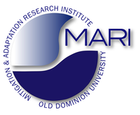News
|
Identifying and Articulating Knowledge Needs for the Implementation and Monitoring of the Sustainable Development Goals in Caribbean Small Island States and Matching Those Needs to Knowledge, Tools, and Data.
Schedule
Time
| Session Description
|
January 17, 2018
09:00-10:30 | Opening Session
Co-Chairs: Dr. Hans-Peter Plag and Danielle Evanson.
The opening session introduced the different parts of the workshop with brief keynote presentations on the view of the governments on SDG implementation and monitoring, the view of NGOs on the efforts made to implement the 2030 Agenda, and the potential contributions providers of EO-based products can make in support of the governmental and non-governmental efforts to implement and monitor the SDGs.
|
January 17, 2018
11:00-13:30 | Session 1: The 2030 Agenda for Sustainable Development in Caribbean Small Island States
Co-Chairs: Jai Rampersad, Dr. Julian Roberts.
This session facilitated a dialogue between governments and people of the Carribbean SIS about the challenges of executing the 2030 Agenda in each of the SIS. Linking to “Geo space for SDGs” (GSSDG) for the implementation brought a local perspective into the deliberations. The first two presentation presented the efforts made by the governments in Montserrat and the British Virgin Islands, and the next presentation gave an overview of the work of a local NGO in Saint Vincent and the Grenadines. Subsequently, the three panelists provided insight into the challenges and efforts from the point of view of UN agencies and regional intergovernmental organizations.
The presentations and panelist statements provided answers to questions including: What are the core challenges? Who is doing what? What are the responsibilities? What knowledge is needed? Where is knowledge on the ocean needed? What data is used and what gaps are known? What science support is available?
At the end of the session, a common understanding of the core problems started to emerge, and knowledge needs to address these problems were identified.
|
January 18, 2018
09:00-12:30 | Session 2: Interdependencies and interactions of SDGs, Targets and Indicators in Caribbean Small Island States
Co-Chairs: Danielle Evanson, Dr. Hans-Peter Plag
This session addressed the wicked problem presented by SDGs and focus on the interconnected nature of the SDGs and the potentially large economic burden associated with progress towards the Targets, as well as the challenge that those attempting to solve the problem are to some extent causing the problem. In a transdisciplinary dialogue, the role of the ocean for the interconnected SDGs was characterized taking into account the many interdependencies between the SDGs. The session considered that most of the SDGs address the socio-economic and environmental systems based on land, and that both the human and non-human environment in SIDS is crucially dependent on the surrounding ocean. While this dependency is grossly similar it is discretly different in the different SIDS, and both the similarities and differences were elaborated on. The goal was to identify those applications and tools that are used in generating knowledge addressing the interdependencies across boundaries between SDGs, government departments and societal sectors.
In two initial presentations, the interdependencies of SDGs were discussed and a framework for the implementation of SDG 14 was presented. The next presentation provided local examples of issues that hamper preservation efforts. In the subsequent panel discussion, the panelist addressed different aspects of SDG implementation from the viewpoints of trade, GEO initiatives, international science organizations and regional NGOs. The participants then split up for a table discussion round.
The first table discussion round focused on the contribution of various stakeholders to the SDG implementation. For each table topic and topical area, the participants were asked to consider the following questions:
- What are the major sustainability challenges in your country or area/region, and which of those relate to the ocean?
- Which of the SDGs are of highest priority in your country or area/region, and in which way are these linked to ocean?
- Are there specific entities in your country or area/region that are responsible for the implementation of the 2030 Agenda and the SDGs?
- To what extent is your country or group engaged in monitoring and reporting the SDGs and which entities are responsible for the monitoring?
- How are you communicating the SDGs to the general public and ensuring that they are received in a positive manner to gain community support?
- What are the challenges in implementing SDGs in a coordinated manner and how are interdependencies between the SDGs addressed?
- What information is needed by your country or group to develop, amend, and implement policies and action plans for the SDGs and to monitor and report on the SDGs?
- What ocean-related national, regional and international policies and agreements is your country or group participating in?
The participants grouped into five tables with the topics:
- Science Support for SIS Governments
- NGO and Private Sector Contributions to SDG Implementation
- Fisheries, Food Security, and Life Under Water: SDGs 2 Versus SDG 14
- Blue Growth and Poverty: SDG 1 versus SDG 14
- Education for Sustainability, Justice, and Equality.
The outcomes of the discussions were reported back to the plenary.
|
January 18, 2018
13:30-15:30 | Session 3: Ocean-related variables and indicators essential for SDG implementation and monitoring in Caribbean Small Island States
Co-Chairs: Zahidah Afrin Nisa and Milton Haughton
This session aimed to merge existing scientific knowledge with the understanding of the societal problem of making progress towards the SDGs in Caribbean SIS developed in the first two sessions. The goal of the session was to use the knowledge needs identified in the first two session to co-create a prioritized inventory of those ocean-related variables and indicators that can inform the development and validation of sustainability policies in the SIS, and can help to engage the people in the implementation of these policies. The inventory aimed to include those variables and indices that characterizing the phycial, chemical, and biological state and trends of the ocean that are essential for both the development and validation of policies in support of SDG implementation and needed for the monitoring of progress towards the targets and more sustainability. The initial presentation gave an overview of work done by experts to identify essential ocean variables and showed examples of observation efforts to monitor these variables. Subsequently, the a table discussion round took place.
The second table discussion round focused on the variables, and specifically ocean-related variables, that need to be known in order to generate knowledge in support of SDG implementation. The participants at each table were asked to consider the relevant questions from the following list:
- Is science support available to your government or your group to assist in decision making related to the implementation, monitoring and reporting of the SDGs?
- Are scenario-based approaches used to assess policy options and their potential impacts and to evaluate the policy impacts?
- In your thematic area, what data are used to address the challenges for SDG implementation and to monitor progress?
- What ocean-related data are available and accessible and what data are missing or not fit-for-purpose?
- Are you aware of knowledge and capacity gaps impacting your efforts to make progress towards the goals?
- What practical steps would you recommend to address the knowledge and capacity gaps identified?
- What ocean-related variables should be monitored to support your efforts to implement and monitor the SDGs?
The participants grouped into five tables with the topics:
- Supporting a Sustainable Blue Economy - SDGs 8, 9, 10, 12, 13
- Food and Water Security, Health, Poverty - SDGs 1, 2, 3, 6
- Maritime Transportation, Fisheries, Pollution, Marine Biodiversity - Implementing SDGs 14, 15
- Ocean and Safe and Thriving Communities - SDGs 7, 10, 11, 12, 13
- Climate Change, Biodiversity, and the Ocean SDGs 13, 14, 15
The outcomes of the discussions were reported back to the plenary.
|
January 18, 2018
16:00-18:00 | Session 4: Observational requirements for ocean-related variables and indicators
Co-Chairs: Francisco Chavez and Emily Smail
The goal of this session was to use the knowledge needs identified in the first two sessions together with applications to create this knowledge in the development of observational requirements for the prioritized ocean-related variables collected in Session 3. The original goal was to have a set of requirements for high-priority variables that specify the spatial and temporal resolution and coverage, accuracy, and latency that are consistent with what those applications require that could make use of the observations. After an initial presentation introducing the ``GEO Blue Planet Initiative'', in the following four presentations, observational needs were addressed in the areas of health and safety, ecosystem health, industry activities, and fisheries. The final presentation provided insight into the role local businesses can play in making progress towards the SDGs.
|
January 19, 2018
09:00-14:30 | Session 5: Matching users, requirements and products
Co-Chairs: Chris Corbin and Doug Wilson
In a novel co-usage effort, the participating experts in Earth observation worked with the stakeholders engaged in SDG implementation to match, where possible, observational requirements to existing data and products. The main purpose of this session was to explore approaches to the co-usage of products and the co-creation of knowledge with these products. The participants were split into three moderated groups focusing on the knowledge and information needs of decision makers, information providers and those engaged in monitoring, regulations and enforcements. Other main stakeholder groups identified included educational institutions, industry, and local resource users, but the needs of these groups were not yet addressed. The orginal goal was to demonstrate the use of the data and products to generate relevant knowledge. In cases were no matching products were known, the goal was to indicating gaps in obervation, processing or capacity. The group deliberations focused more on the process of matching that the actual matching. It was also realized that a more ``neutral'' moderation of the deliberations by experienced indepedant moderators would have been an advantage compare to moderation by either Earth observation providers or societal stakeholders.
|
January 19, 2018
14:30-16:30 | Session 6: Improving availability of Earth observations in service of SDG implementation in Caribbean Small Island States
Co-Chairs: Dr. Douglas Cripe and Dr. Hans-Peter Plag.
The experience of Session 5 provided a basis to discuss options for improving the service Earth observations and derived products can provide to the execution of the 2030 Agenda. The main questions addressed was how regional an international organizations can collaborate to ensure that governments and the people have access to the required ocean-related Earth observations and the capacity to utilize these observations for the creation of the needed knowledge. Concerning the local action, the implementation of the Geo Space for SDGs was at the center of the deliberations. Demonstrating the relevance of Earth-observation derived information for this Geo Space was identified as the candidate for a demonstration project to be presented to the GEO Plenary in Fall 2018.
|
|




